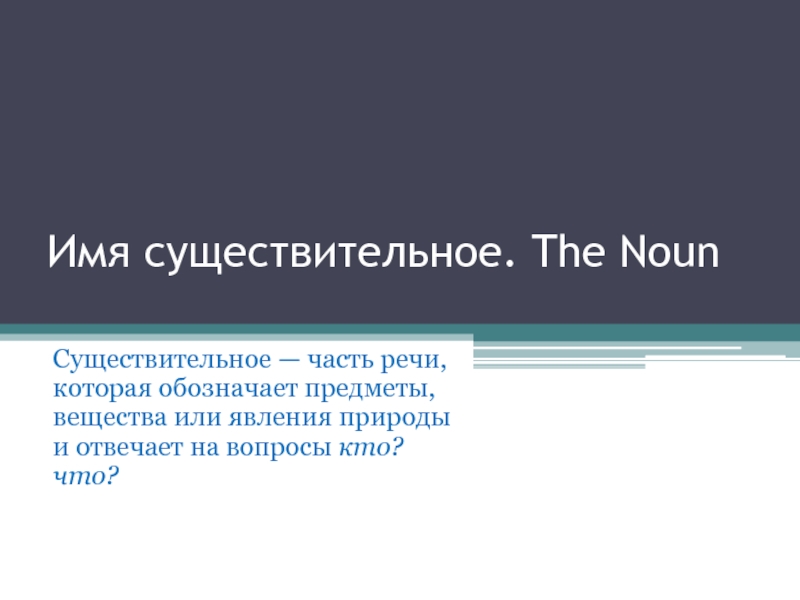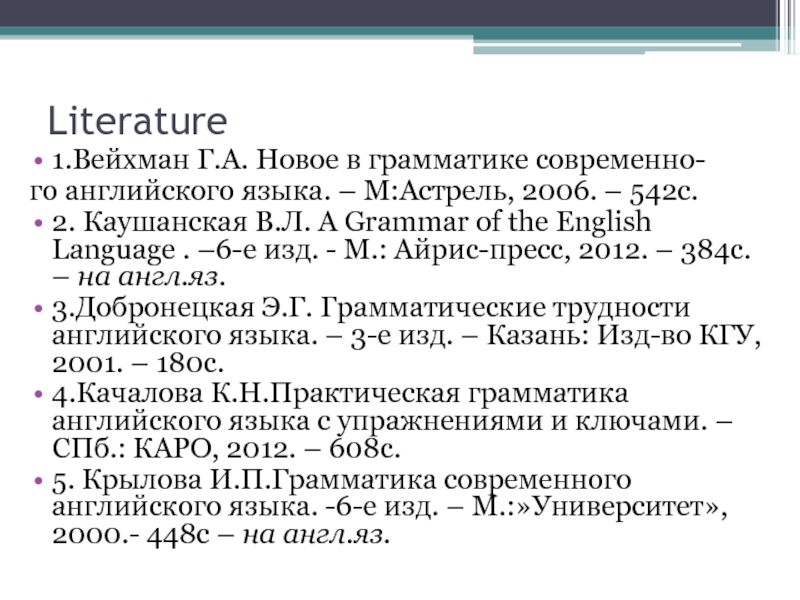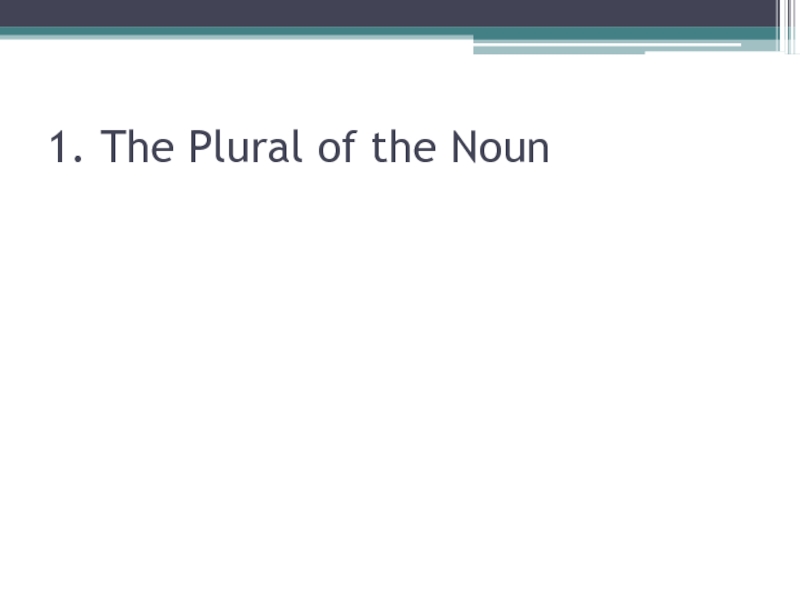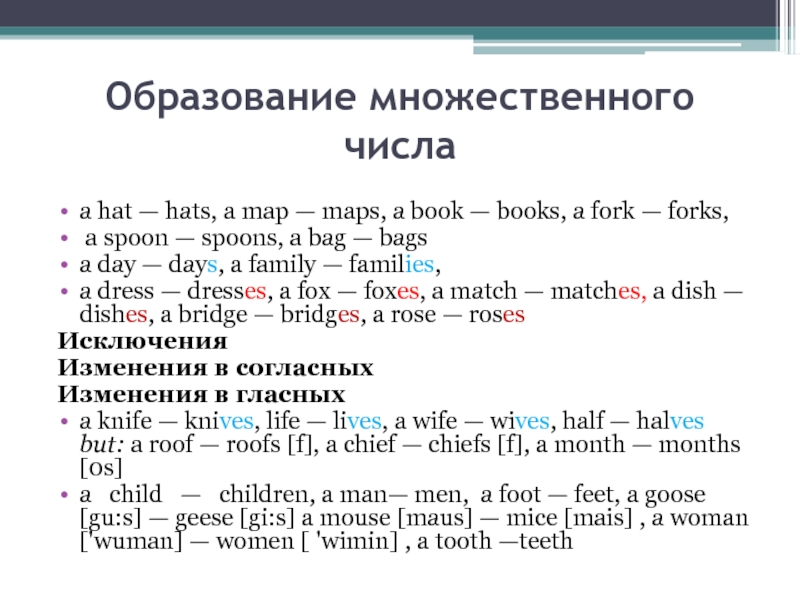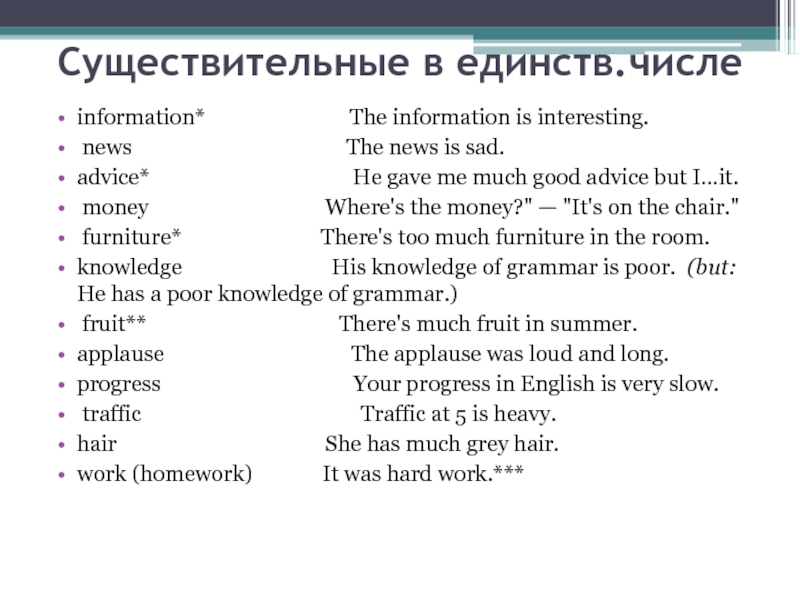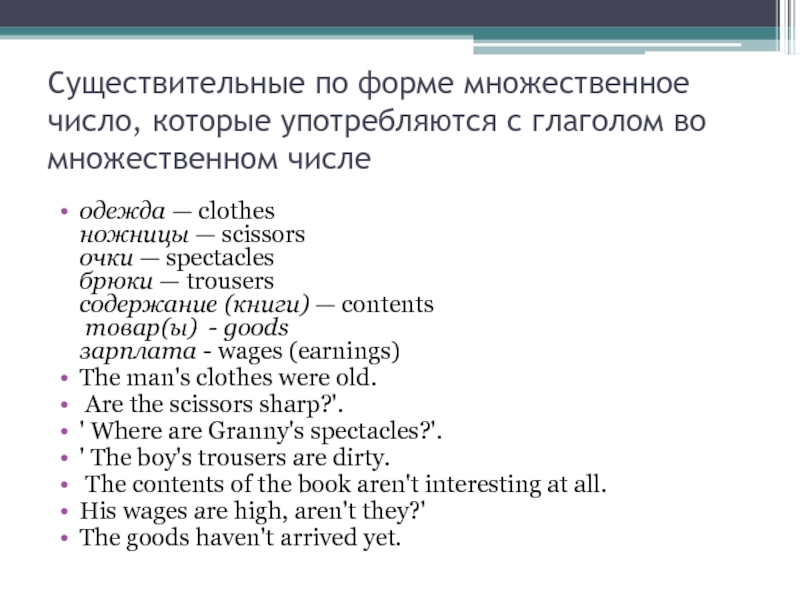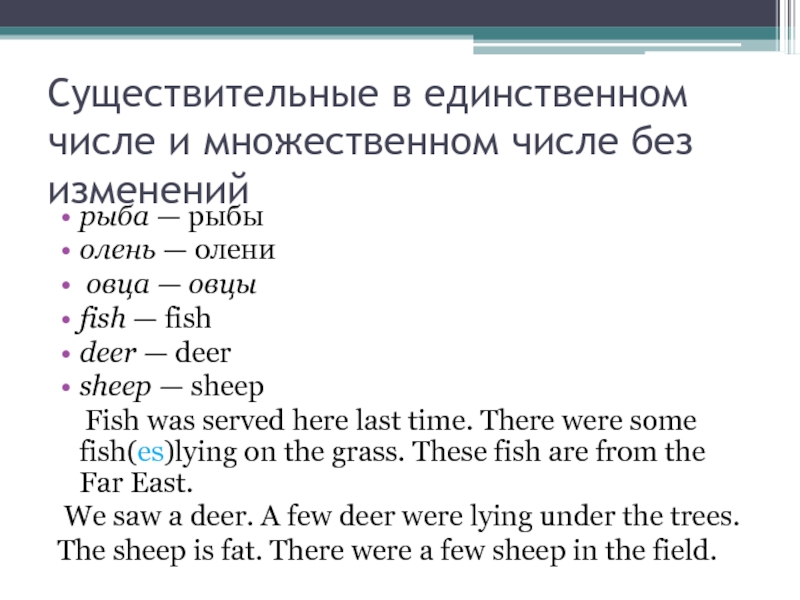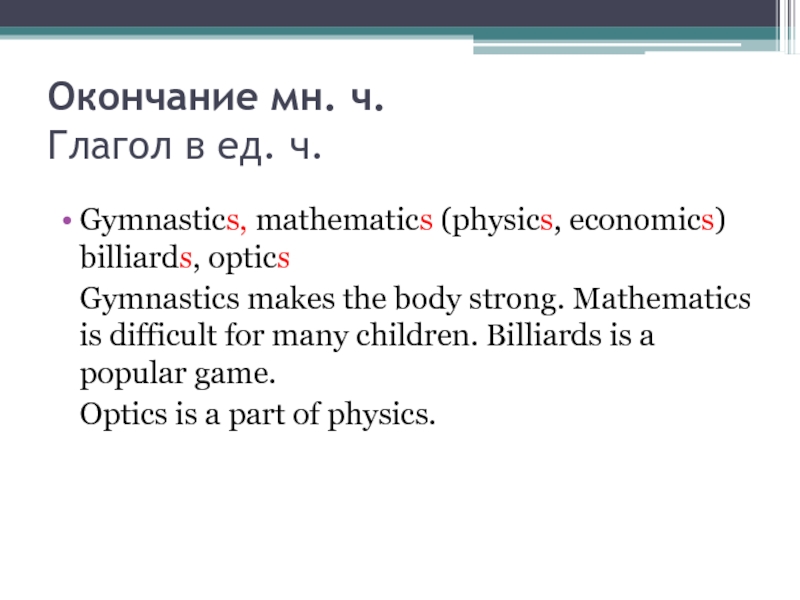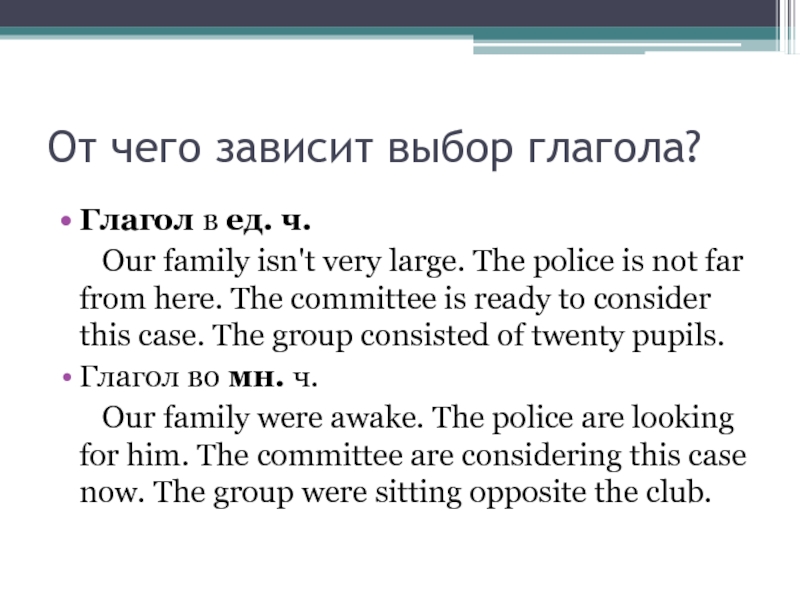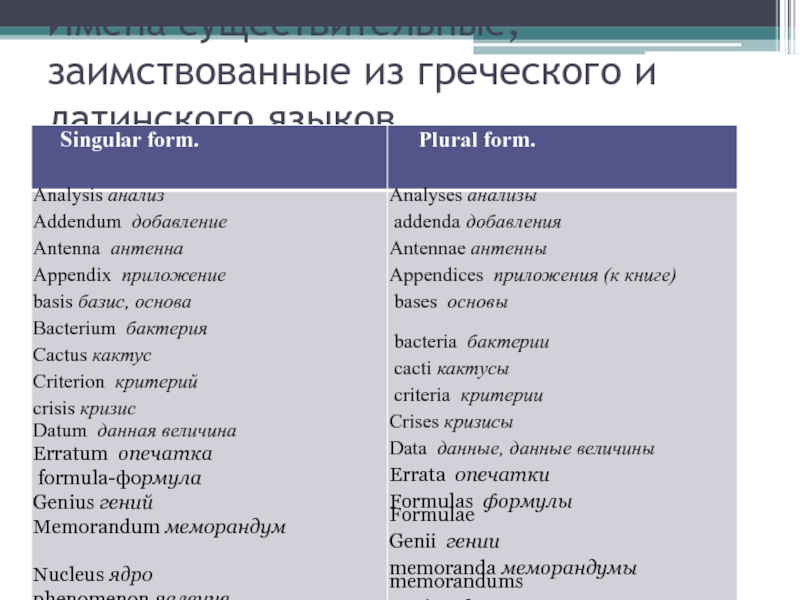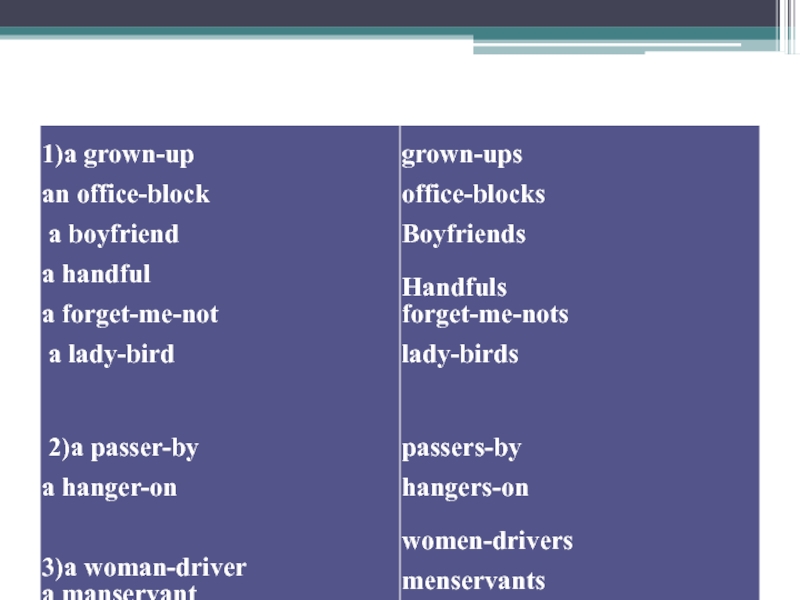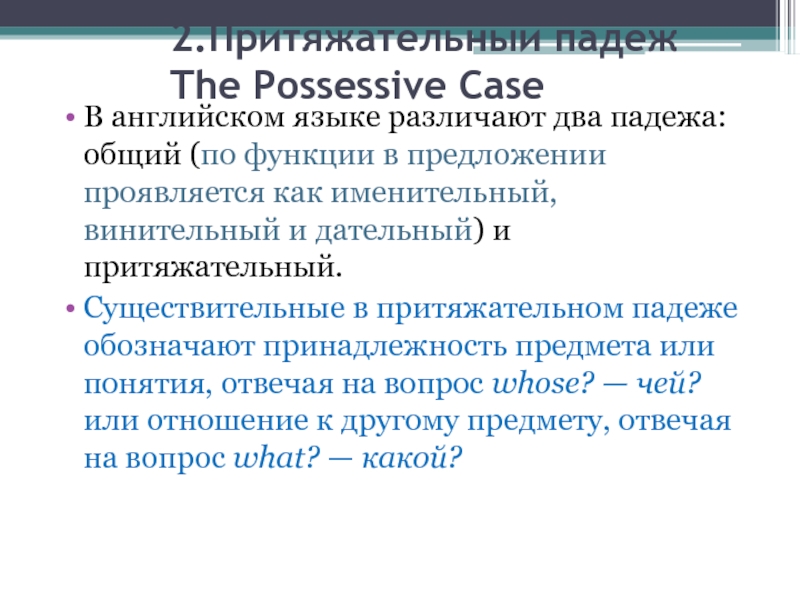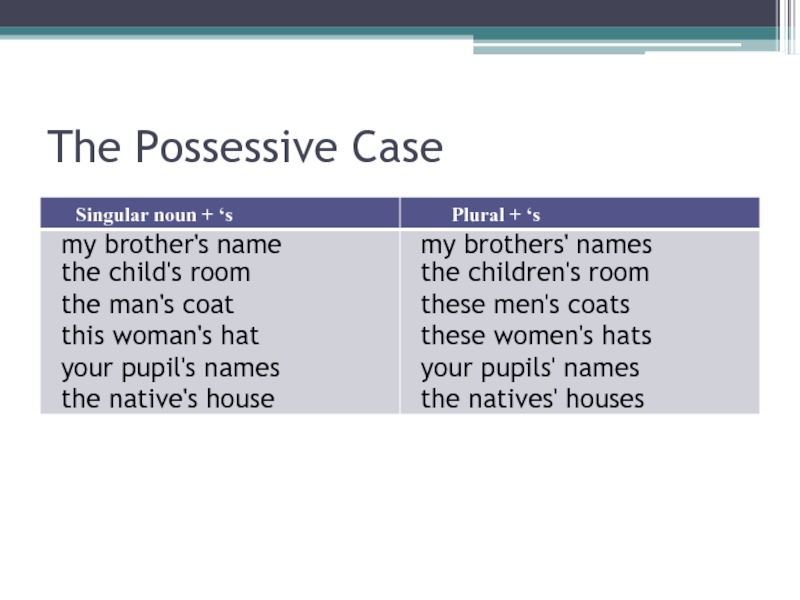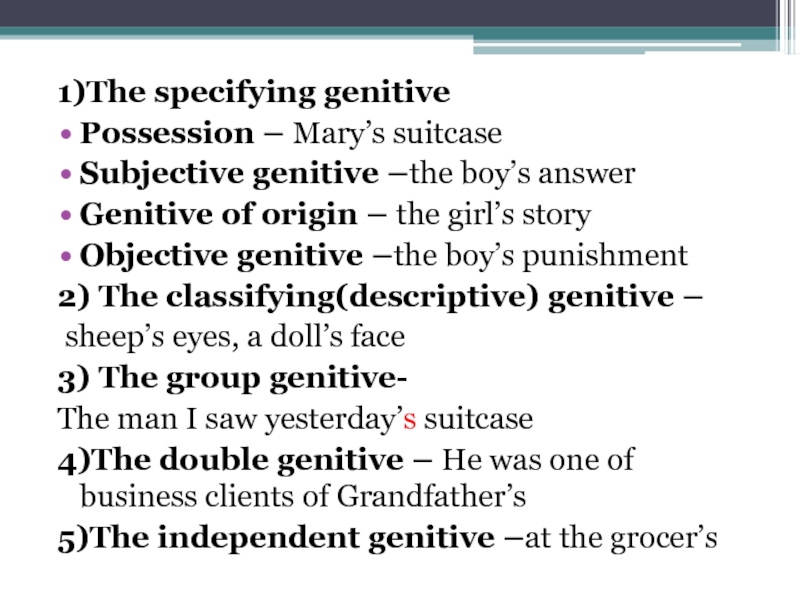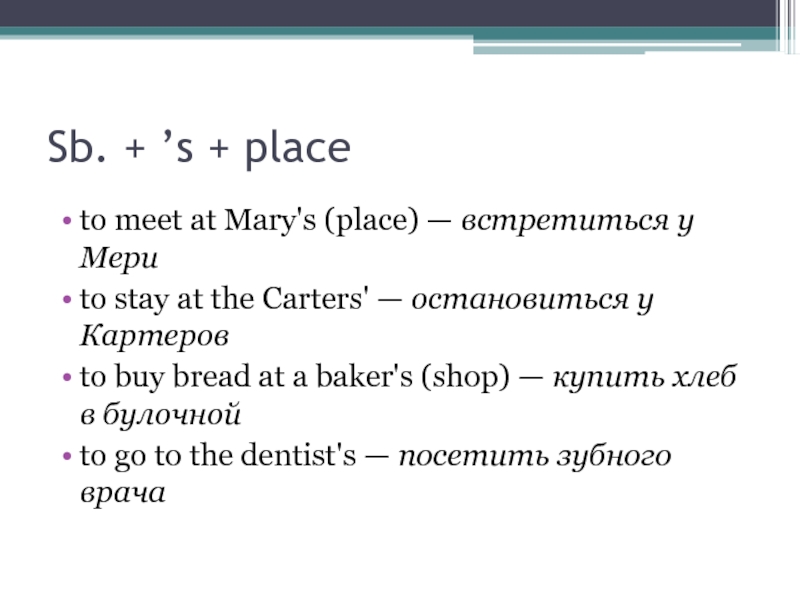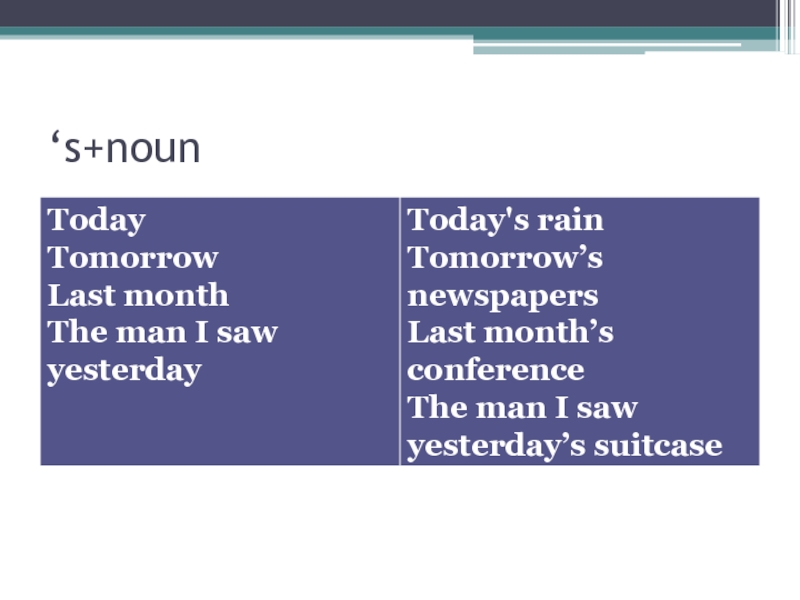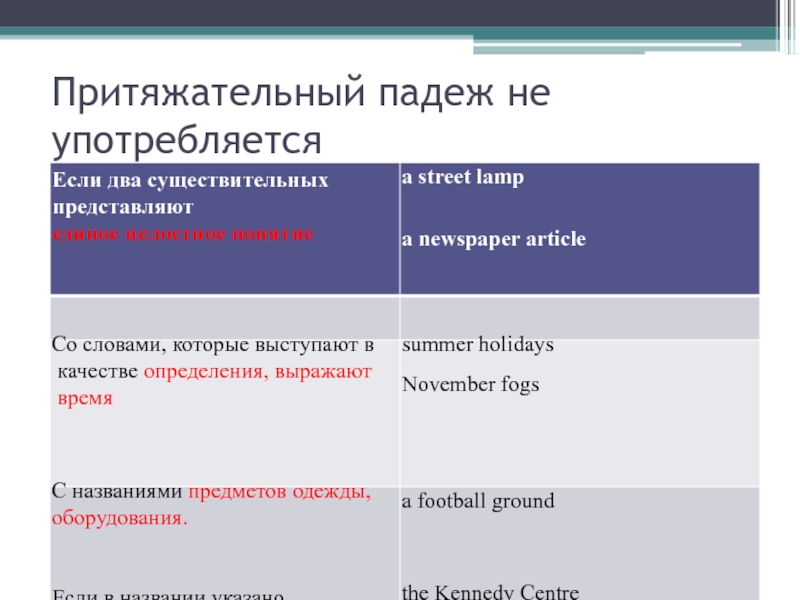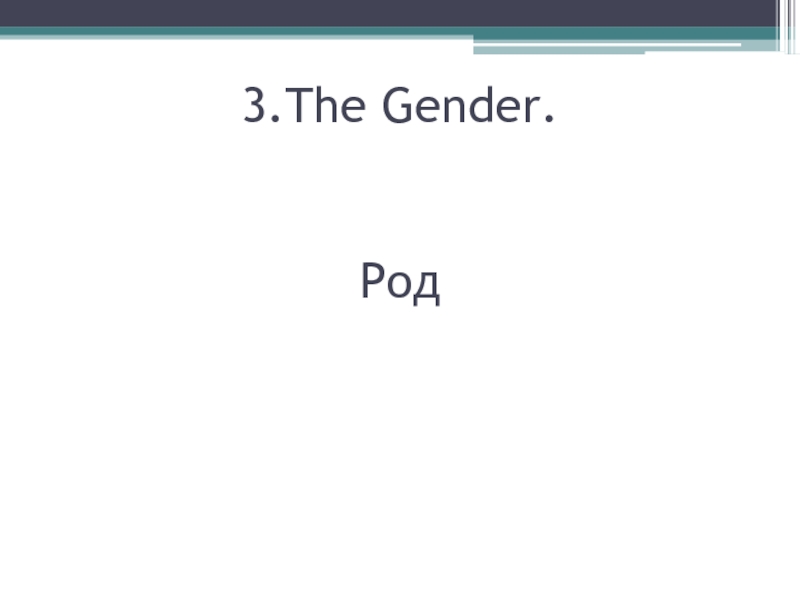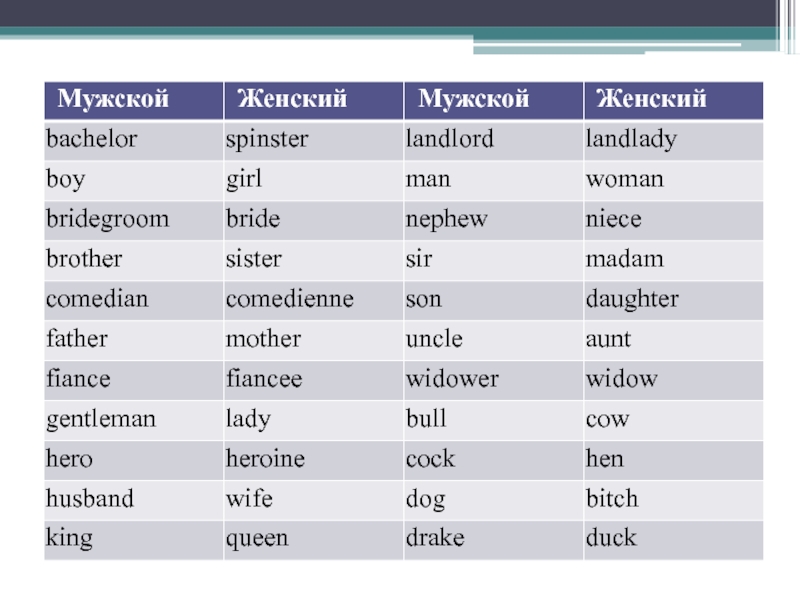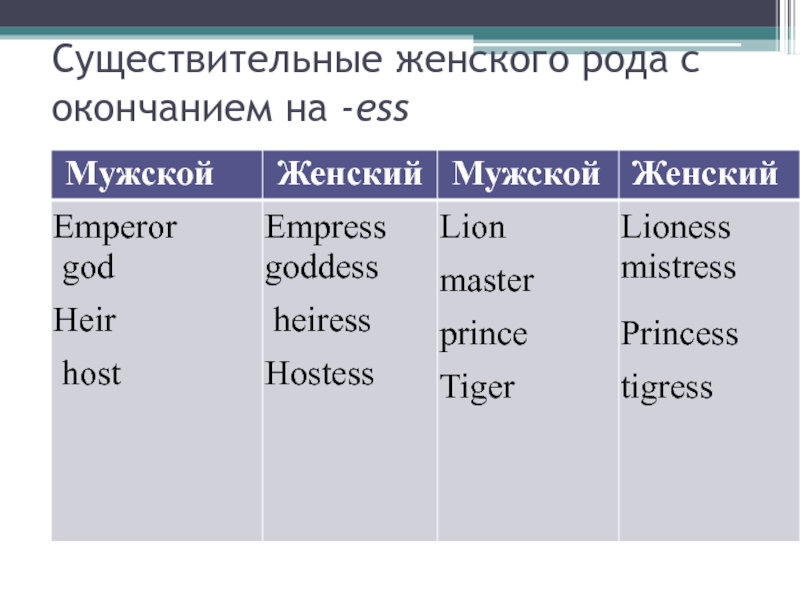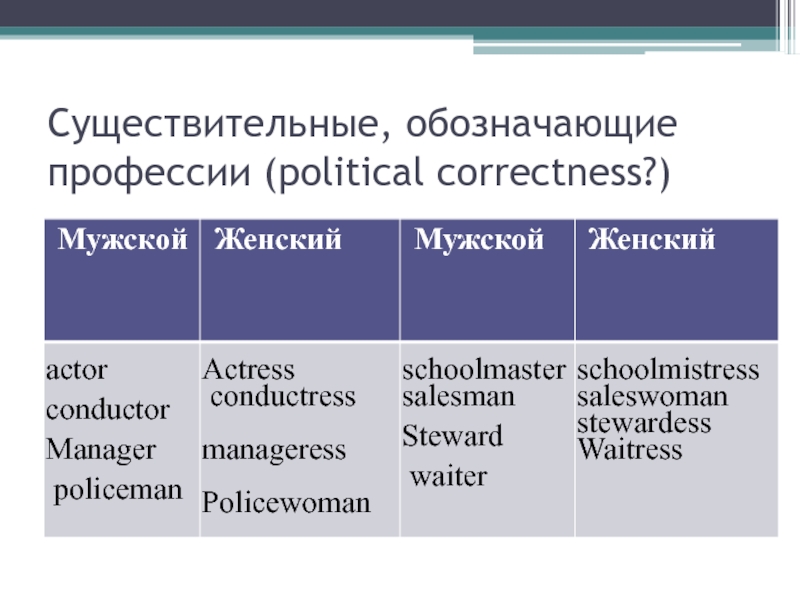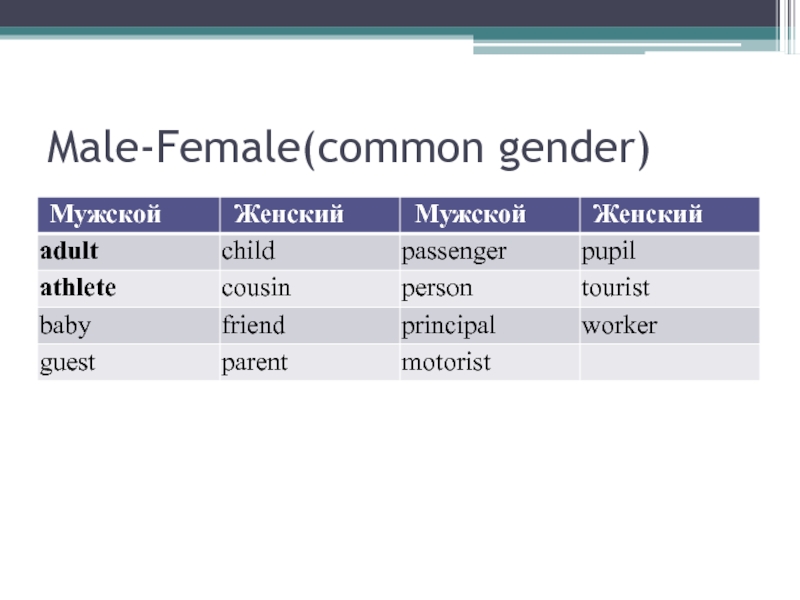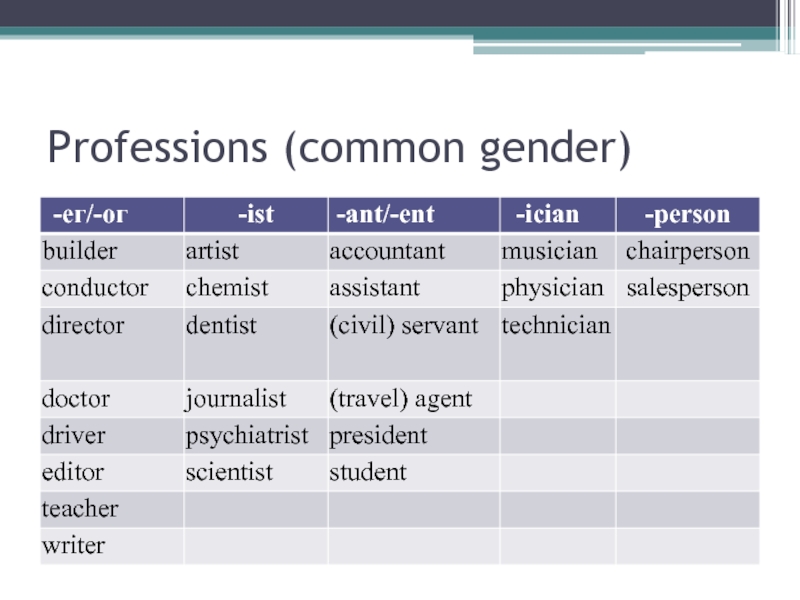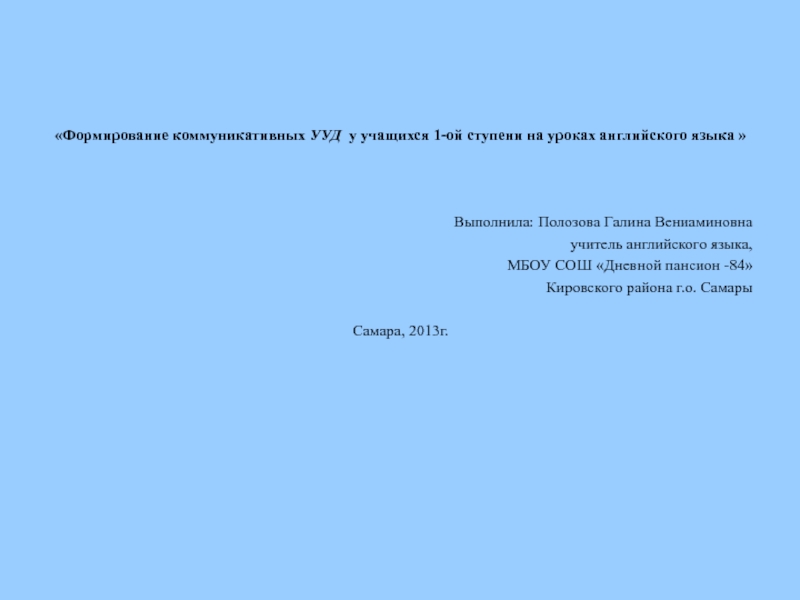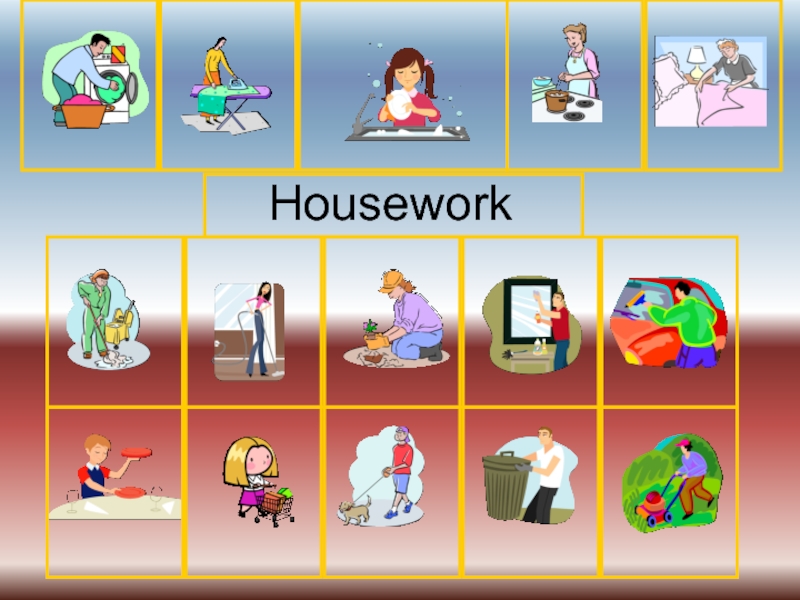- Главная
- Разное
- Дизайн
- Бизнес и предпринимательство
- Аналитика
- Образование
- Развлечения
- Красота и здоровье
- Финансы
- Государство
- Путешествия
- Спорт
- Недвижимость
- Армия
- Графика
- Культурология
- Еда и кулинария
- Лингвистика
- Английский язык
- Астрономия
- Алгебра
- Биология
- География
- Детские презентации
- Информатика
- История
- Литература
- Маркетинг
- Математика
- Медицина
- Менеджмент
- Музыка
- МХК
- Немецкий язык
- ОБЖ
- Обществознание
- Окружающий мир
- Педагогика
- Русский язык
- Технология
- Физика
- Философия
- Химия
- Шаблоны, картинки для презентаций
- Экология
- Экономика
- Юриспруденция
Имя существительное. The Noun презентация
Содержание
- 1. Имя существительное. The Noun
- 2. Literature 1.Вейхман Г.А. Новое в грамматике
- 3. 1. The Plural of the Noun
- 4. Образование множественного числа a hat
- 5. Существительные в единств.числе information*
- 6. Существительные по форме множественное число, которые употребляются
- 7. Существительные в единственном числе и множественном числе
- 8. Окончание мн. ч. Глагол в ед. ч.
- 9. От чего зависит выбор глагола? Глагол в
- 10. Имена существительные, заимствованные из греческого и латинского языков
- 11. Сложные слова
- 12. 2.Притяжательный падеж The Possessive Case В
- 13. The Possessive Case
- 14. 1)The specifying genitive Possession – Mary’s suitcase
- 15. Sb. + ’s + place to meet
- 16. ‘s+noun
- 17. Притяжательный падеж не употребляется
- 18. 3.The Gender. Род
- 20. Существительные женского рода c окончанием на -ess
- 21. Существительные, обозначающие профессии (political correctness?)
- 22. Male-Female(common gender)
- 23. Professions (common gender)
Слайд 1Имя существительное. The Noun
Существительное — часть речи, которая обозначает предметы, вещества
Слайд 2Literature
1.Вейхман Г.А. Новое в грамматике современно-
го английского языка. – М:Астрель, 2006.
2. Каушанская В.Л. A Grammar of the English Language . –6-е изд. - М.: Айрис-пресс, 2012. – 384с. – на англ.яз.
3.Добронецкая Э.Г. Грамматические трудности английского языка. – 3-е изд. – Казань: Изд-во КГУ, 2001. – 180с.
4.Качалова К.Н.Практическая грамматика английского языка с упражнениями и ключами. – СПб.: КАРО, 2012. – 608с.
5. Крылова И.П.Грамматика современного английского языка. -6-е изд. – М.:»Университет», 2000.- 448с – на англ.яз.
Слайд 4Образование множественного числа
a hat — hats, a map — maps,
a spoon — spoons, a bag — bags
a day — days, a family — families,
a dress — dresses, a fox — foxes, a match — matches, a dish — dishes, a bridge — bridges, a rose — roses
Исключения
Изменения в согласных
Изменения в гласных
a knife — knives, life — lives, a wife — wives, half — halves but: a roof — roofs [f], a chief — chiefs [f], a month — months [0s]
a child — children, a man— men, a foot — feet, a goose [gu:s] — geese [gi:s] a mouse [maus] — mice [mais] , a woman ['wuman] — women [ 'wimin] , a tooth —teeth
Слайд 5Существительные в единств.числе
information*
news The news is sad.
advice* He gave me much good advice but I…it.
money Where's the money?" — "It's on the chair."
furniture* There's too much furniture in the room.
knowledge His knowledge of grammar is poor. (but: He has a poor knowledge of grammar.)
fruit** There's much fruit in summer.
applause The applause was loud and long.
progress Your progress in English is very slow.
traffic Traffic at 5 is heavy.
hair She has much grey hair.
work (homework) It was hard work.***
Слайд 6Существительные по форме множественное число, которые употребляются с глаголом во множественном
одежда — clothes
ножницы — scissors
очки — spectacles
брюки — trousers
содержание (книги) — contents
товар(ы) - goods
зарплата - wages (earnings)
The man's clothes were old.
Are the scissors sharp?'.
' Where are Granny's spectacles?'.
' The boy's trousers are dirty.
The contents of the book aren't interesting at all.
His wages are high, aren't they?'
The goods haven't arrived yet.
Слайд 7Существительные в единственном числе и множественном числе без изменений
рыба — рыбы
олень
овца — овцы
fish — fish
deer — deer
sheep — sheep
Fish was served here last time. There were some fish(es)lying on the grass. These fish are from the Far East.
We saw a deer. A few deer were lying under the trees.
The sheep is fat. There were a few sheep in the field.
Слайд 8Окончание мн. ч.
Глагол в ед. ч.
Gymnastics, mathematics (physics, economics) billiards, optics
Optics is a part of physics.
Слайд 9От чего зависит выбор глагола?
Глагол в ед. ч.
Our
Глагол во мн. ч.
Our family were awake. The police are looking for him. The committee are considering this case now. The group were sitting opposite the club.
Слайд 122.Притяжательный падеж
The Possessive Case
В английском языке различают два падежа: общий (по
Существительные в притяжательном падеже обозначают принадлежность предмета или понятия, отвечая на вопрос whose? — чей? или отношение к другому предмету, отвечая на вопрос what? — какой?
Слайд 141)The specifying genitive
Possession – Mary’s suitcase
Subjective genitive –the boy’s answer
Genitive of
Objective genitive –the boy’s punishment
2) The classifying(descriptive) genitive –
sheep’s eyes, a doll’s face
3) The group genitive-
The man I saw yesterday’s suitcase
4)The double genitive – He was one of business clients of Grandfather’s
5)The independent genitive –at the grocer’s
Слайд 15Sb. + ’s + place
to meet at Mary's (place) — встретиться
to stay at the Carters' — остановиться у Картеров
to buy bread at a baker's (shop) — купить хлеб в булочной
to go to the dentist's — посетить зубного врача
